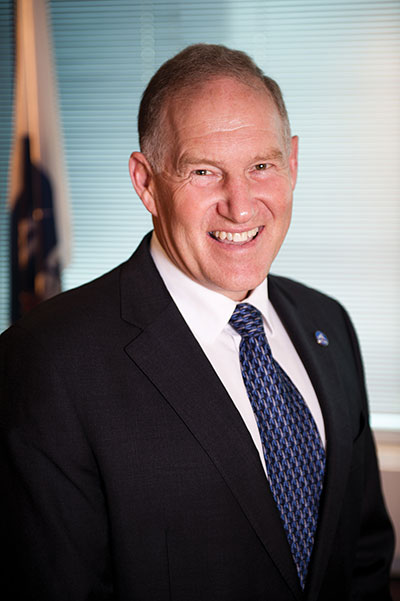
Features
Operations
At the gate: Nurturing an essential program
Canadians reap the benefits of space technology on a daily basis, whether it’s satellite television, GPS navigation on land, in the air, or among other uses such as monitoring climate change or facilitating agriculture, according to Walter Natynczyk, president of the Canadian Space Agency (CSA).
July 7, 2014 By Brian Dunn
Canadians reap the benefits of space technology on a daily basis, whether it’s satellite television, GPS navigation on land, in the air, or among other uses such as monitoring climate change or facilitating agriculture, according to Walter Natynczyk, president of the Canadian Space Agency (CSA).
 |
|
| Space is essential for everyone in Canada and its success requires a full-time investment . . . and it requires co-operation. PHOTO: Canadian Space Agency
|
“Space is essential for everyone in Canada and its success requires a full-time investment, and it requires co-operation,” he said in a recent speech to the Montreal Council on Foreign Relations. He referred to an industry review by former cabinet minister David Emerson, who said Canada’s space program has floundered recently and that an increase in global competition was affecting Canada’s aerospace industry.
Natynczyk also noted that Canada’s space industry employs some 8,000 people and generates $3.3 billion in annual revenue, half from exports. Further, it employs 1,300 researchers at 30 Canadian universities.
“My sense is all of us take space for granted,” he said. “We talk about (retired astronaut) Chris Hadfield and the Canadarm, but little else. The reality is everybody relies on space and space is about international co-operation and that’s why we’re committed to an international partnership and the ($100-billion) international space station.”
Industry Minister James Moore is trying to encourage more co-operation between the government, private and education sectors for space research and space projects, Natynczyk pointed out. He said the space industry is “congested” with more than 1,100 satellites in space. And while there’s more competition, there are also more opportunities for exports.
Natynczyk listed five principles governing Canada’s space program. The first is Canada needs a space program for our national interest, security and sovereignty. He noted Radarsat is one of the best imagery systems in the world. Space is also an economic engine for Canada with highly qualified personnel that support the auto, mining and medical professions, among others, with innovative technologies. The third principle is that the need to work with other international partners, such as the Russians, Japanese, Europeans and Americans, on such projects such as the international space station is essential.
The fourth principle is the promotion of Canadian know-how like the Canadarm and Canadarm II, which are vital for the space station maintenance and for other uses on earth such as surgical procedures. The fifth principle is the development of future “space pioneers” by encouraging future generations to study space and pursue careers in space-related industries. One step in that direction is a summer program for 110 of the brightest space students from around the world being presented by HEC Montreal.
“The Canadian space program is alive, and it relies on 200 companies with 8,000 workers, and depends on international friends,” said Natynczyk. There were many stakeholders in the program and a consensus was reached by the creation of the CSA in 1990 that brought together 21 different government departments and all provincial space programs.
“What’s the next breakthrough technology for Canada? Communication satellites, optics and robotics are where Canada is a leader,” Natynczyk noted.
It was suggested after the presentation that maybe Canada should not rely on other countries to send our astronauts and satellites into space, and that we should have our own rockets with financing partially coming from the private sector.
“When I work with my counterparts from all the other agencies around the world, they’re absolutely impressed by the value that Canada achieves and successes we’ve had in orbit, both in terms of exploration and satellite operations, because we’re able to put our effort into spacecraft,” he said. “There are a lot of countries . . . that are into the launch business and so we’re able to leverage the existing launch capabilities around the world to get the best price points. And so what we’re able to do is get extraordinary value for the Canadian dollar.”
Natynczyk was also asked if his agency has had to cut some programs due to budget constraints.
“No. We’ve got the funds we need to run all the programs that we have now,” he said. “The government of Canada has put a lot of money into these granting councils, and some of them haven’t spent money on space for many years even though it’s in their charter to spend money on space. So we’re trying to build those relationships and partnerships.”
Brian Dunn is a Wings writer and columnist.